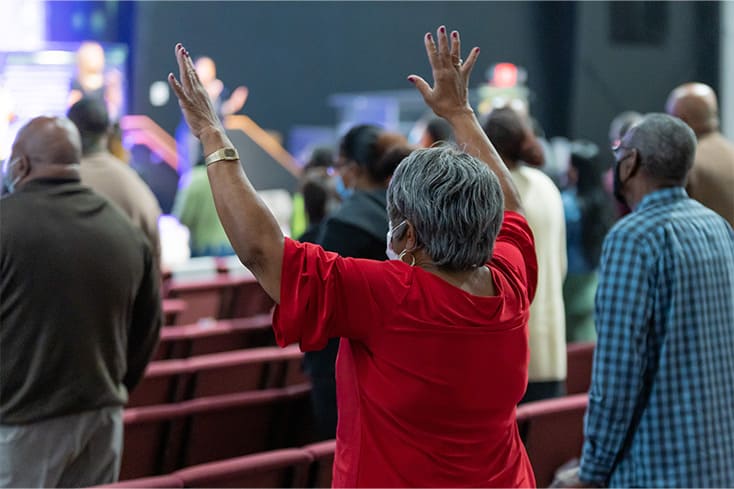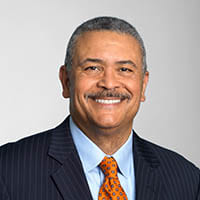August 19, 2022
By Daniel H. Gillison

For too long, there has been a divide between faith and mental health — with mental illness being viewed as a moral or spiritual failing and spirituality being viewed as unscientific. We’ve spent too much time in silos, where instead we could be finding strength and healing through partnership. Faith and mental health are not antithetical to each other; in fact, they are complementary.
After all, if mental health is health, that includes our whole health — our physical health, our mental health and our spiritual health.
Faith can help us in many ways that traditional treatments can’t. Faith is a powerful thing. Faith can help us make sense of our suffering. Faith can give us strength to persevere through hardship. Faith can help us connect with a community that cares.
And faith leaders tend to be some of our most frequent first responders in mental health crises — especially in communities of color.
Did you know that churches, temples, mosques and faith communities reach 70% of the American population each month? And in the U.S., clergy outnumber psychiatrists by nearly 10 to 1 and are more equitably distributed geographically than health professionals.
There is a real opportunity here to partner with faith leaders to help educate congregations about mental health, end the stigma and get people the appropriate mental health support they need and deserve.
Here at NAMI, we are deeply committed to engaging with faith communities because we are passionate about meeting people where they are, not where we want them to be. That’s why we have created a special faith advisory group and a variety of resources for faith communities to engage with — including our interfaith network NAMI FaithNet, a series of blogs on faith and mental health, faith support groups, awareness outreach suggestions for faith communities and more.
This year, we’re even holding a special conference called Pathways to Hope, which will have a specific focus on faith and spirituality’s role in supporting mental health. The conference was originally started by NAMI San Antonio, but this year we are proud to be offering it as a part of NAMI FaithNet through multiple local state organizations and affiliates across the country. To get involved and learn more about the intersection of faith and mental health, you can register for the event here.
In a time of so much division, anger and burnout, we need unity more than ever; we need hope more than ever; we need faith more than ever.
I hope you’ll join us for this important event, and I hope you’ll join us in continuing to bring communities together for mental health.
Faith & Mental Health Resources:
 Daniel H. Gillison, Jr. is the chief executive officer of NAMI (National Alliance on Mental Illness). Prior to his work at NAMI, he served as executive director of the American Psychiatric Association Foundation (APAF) in addition to several other leadership roles at various large corporations such as Xerox, Nextel, and Sprint. He is passionate about making inclusive, culturally competent mental health resources available to all people, spending time with his family, and of course playing tennis. You can follow him on Twitter at @DanGillison.
Daniel H. Gillison, Jr. is the chief executive officer of NAMI (National Alliance on Mental Illness). Prior to his work at NAMI, he served as executive director of the American Psychiatric Association Foundation (APAF) in addition to several other leadership roles at various large corporations such as Xerox, Nextel, and Sprint. He is passionate about making inclusive, culturally competent mental health resources available to all people, spending time with his family, and of course playing tennis. You can follow him on Twitter at @DanGillison.
We’re always accepting submissions to the NAMI Blog! We feature the latest research, stories of recovery, ways to end stigma and strategies for living well with mental illness. Most importantly: We feature your voices.
LEARN MORENAMI HelpLine is available M-F, 10 a.m. – 10 p.m. ET. Call 800-950-6264,
text “NAMI” to 62640, or email. In a crisis, call or text 988 (24/7).